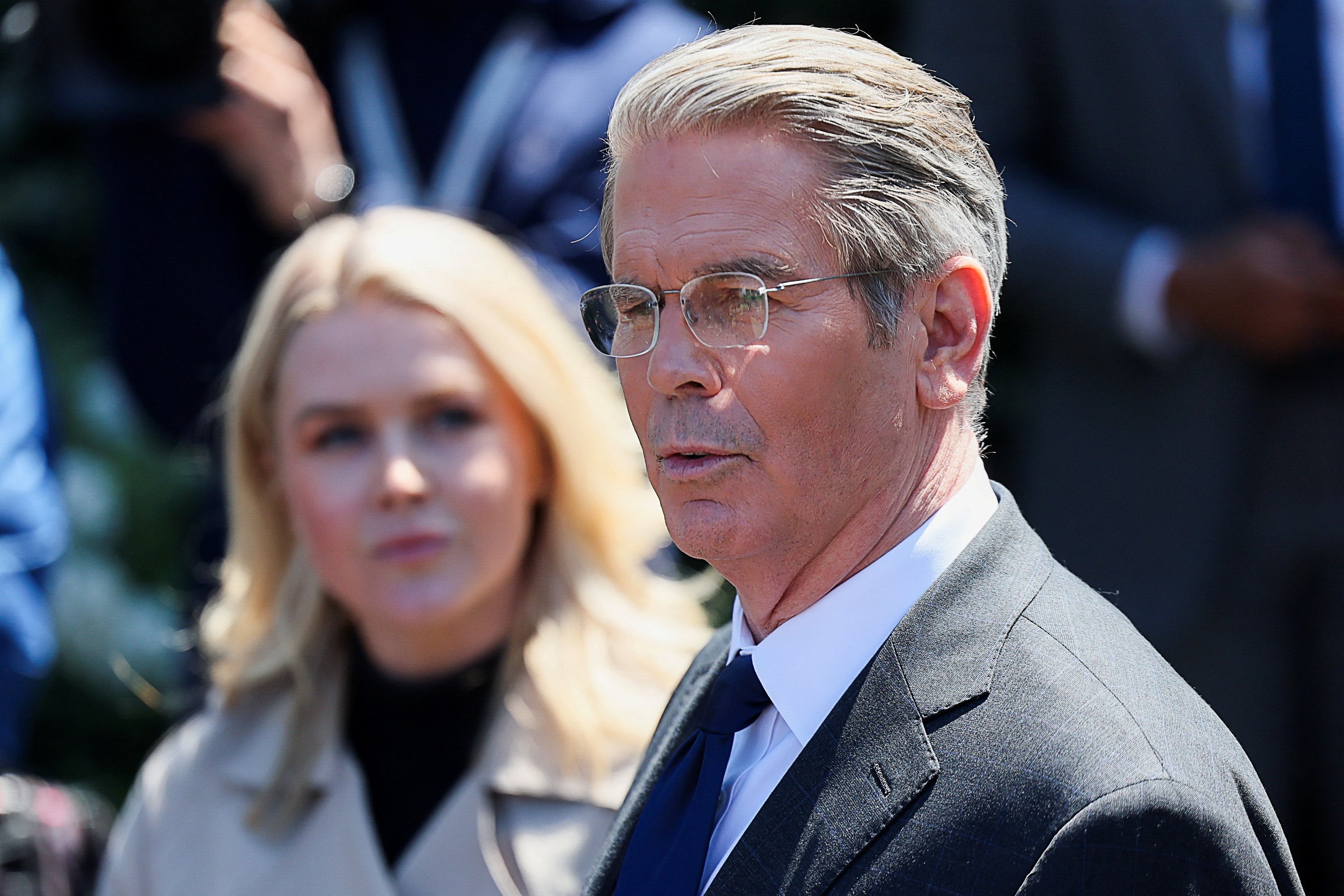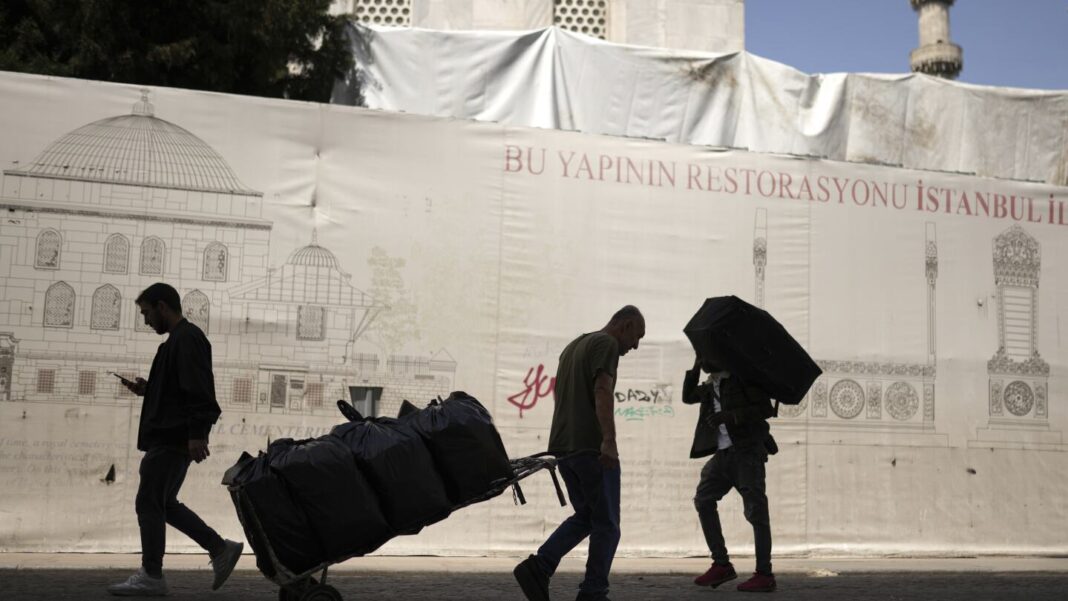Unease and confusion over Donald Trump’s tariff blitz persisted on Thursday after the Federal Reserve (Fed) Chair Jerome Powell warned of rising prices and “volatility,” while “progress” flagged by the U.S. president in talks with Japan lifted markets slightly.
Trump is banking that his tariffs will lead to a bonanza of beneficial trade deals, lowering barriers to U.S. products and shifting global manufacturing to the U.S.
But his trade negotiations – including with Japan on Wednesday – are proceeding against a backdrop of deepening confrontation with economic rival China and mounting concern over widespread disruption.
Powell said Wednesday that tariffs are “highly likely” to provoke a temporary rise in inflation and could prompt “more persistent” price increases.
He also noted the “volatility” in the markets at a “time of high uncertainty.”
That unease hit Wall Street, where the Nasdaq at one point plummeted more than 4% on Wednesday, the S&P more than 3% and the Dow Jones more than 2%.
Nvidia momentarily dropped more than 10% after disclosing major costs due to new U.S. export restrictions on sending semiconductors to China.
Asian markets were mostly in positive territory early on Thursday, with Japan’s Nikkei up almost 1% and the Hang Seng 1.25% higher.
World Bank chief Ajay Banga echoed Powell, saying, “uncertainty and volatility are undoubtedly contributing to a more cautious economic and business environment.”
The World Trade Organization (WTO) head Ngozi Okonjo-Iweala said that the uncertainty “threatens to act as a brake on global growth, with severe negative consequences for the world, the most vulnerable economies in particular.”
China says ‘no winner’
While most of the rest of the world has been slapped with a blanket 10% tariff, China faces new levies of up to 145% on many products.
Beijing has responded with 125% of its duties on U.S. goods.
“If the U.S. really wants to resolve the issue through dialogue and negotiation, it should stop exerting extreme pressure, stop threatening and blackmailing, and talk to China based on equality, respect and mutual benefit,” Chinese Foreign Ministry spokesperson Lin Jian said Wednesday.
China said on Wednesday that it saw a forecast-beating 5.4% jump in growth in the first quarter as exporters rushed to get goods out of factory gates ahead of the U.S. levies.
But Heron Lim from Moody’s Analytics told Agence France-Presse (AFP) the impact would be felt in the second quarter, as tariffs begin “impeding Chinese exports and slamming the brakes on investment.”
Japan test case?
After meeting Japan’s tariffs envoy, Trump posted on his Truth Social platform that there had been “big progress.”
But after Ryosei Akazawa concluded his talks with Treasury Secretary Scott Bessent and Trade Representative Jamieson Greer, it became clear that no immediate breakthrough was made.

“Of course, the discussions going forward won’t be easy, but President Trump has expressed his desire to give the negotiations with Japan the highest priority,” Prime Minister Shigeru Ishiba said in Tokyo.
“We recognize that this round of talks has created a foundation for the next steps, and we appreciate that,” Ishiba said.
But he added: “Of course, there is a gap between Japan and the U.S.”
Japanese companies are the biggest investors in the U.S., and Japan is a vital strategic ally for Washington in the Asia-Pacific region.
But Japan is subject to the same 10% baseline tariffs imposed by Trump on most countries and painful levies on cars, steel and aluminum.
Trump reportedly wants Japan to buy more U.S. defense equipment and to do more to strengthen the yen against the dollar. Akazawa said that the latter issue was not discussed.
Stephen Innes at SPI Asset Management said before the talks that traders were “waiting to see if Akazawa can thread the needle – cut a side deal, dodge Trump’s sledgehammer and limp out with bruises instead of a shattered jaw.”
Officials from Indonesia held talks in Washington on Wednesday. The finance minister of South Korea, a major semiconductor and auto exporter, will meet Bessent next week.
Although popular among Republicans, the tariff war is politically risky for Trump at home.
California Democratic Governor Gavin Newsom announced he was launching a new court challenge against Trump’s “authority to unilaterally enact tariffs, which have created economic chaos, driven up prices and harmed the state, families and businesses.”






